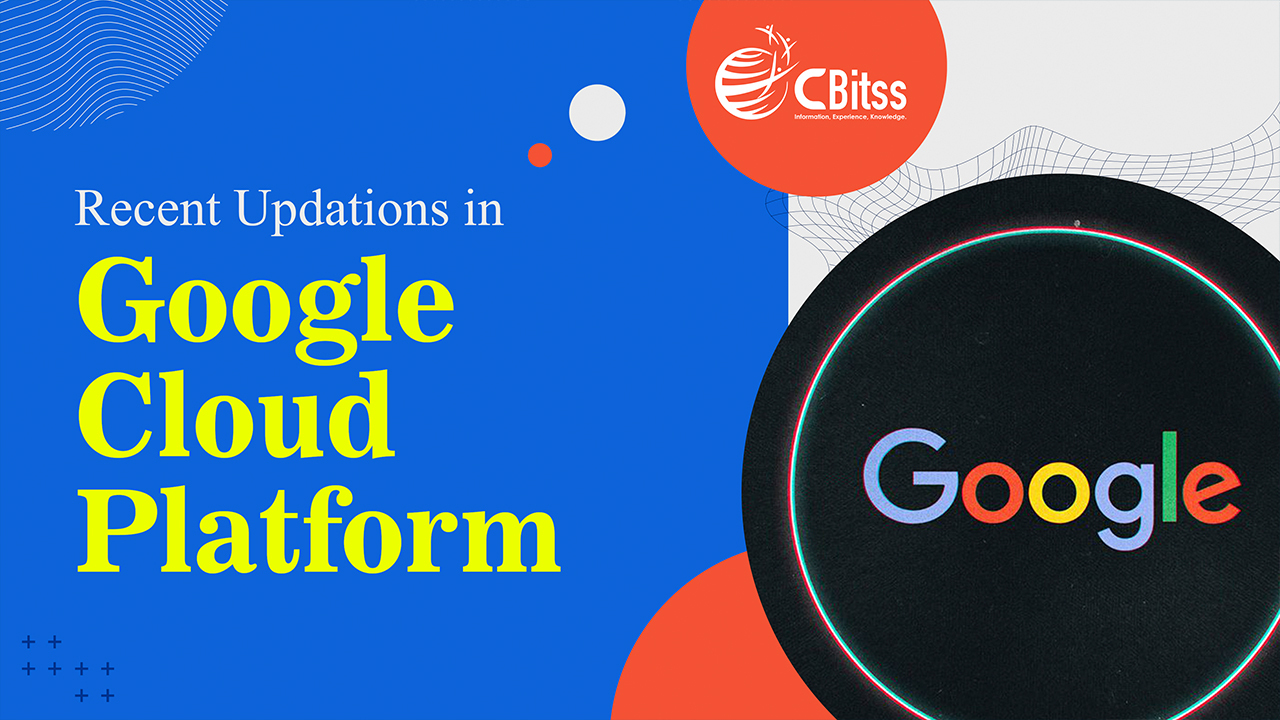Google Cloud Platform’s Latest Integrations: Enhancing Your Tech Stack
Introduction
Staying updated with recent updations in Google Cloud Platform (GCP) is essential for businesses looking to enhance their tech stack. GCP continuously rolls out new features and integrations to simplify operations and improve productivity. In this article, we’ll explore the latest GCP integrations and how they support seamless cloud management, security, and scalability.
Why Google Cloud Platform’s Integrations Matter
Supporting a Diverse Tech Environment
Modern businesses often use multiple applications and platforms. GCP’s latest integrations help bridge these platforms, ensuring smoother workflows and less time spent on compatibility issues.
Enhanced Productivity and Collaboration
GCP’s integrations improve productivity by connecting data and processes across tools. Teams collaborate more effectively, leading to quicker decision-making and project completion.
Better Data Security and Compliance
With rising cybersecurity challenges, GCP integrations focus on enhanced security and compliance. These updates help businesses meet industry standards and protect sensitive data.
Key GCP Integrations in 2024
Integration with GitHub Actions for CI/CD
The integration of GitHub Actions with Google Cloud enables seamless continuous integration and deployment (CI/CD) processes. Developers can now trigger builds and deployments directly within GitHub, simplifying workflows.
- How It Helps: Reduces time spent on deploying code, ensuring faster updates.
- Ideal For: Development teams looking to streamline code deployment and collaboration.
SAP on Google Cloud
SAP’s integration with GCP allows organizations to manage SAP applications on Google Cloud. Businesses can now enjoy enhanced performance and flexibility for their ERP systems.
- How It Helps: Offers improved data processing and advanced analytics for business data.
- Ideal For: Enterprises relying on SAP for large-scale data processing and business operations.
BigQuery Integration with Looker Studio
Looker Studio’s integration with BigQuery provides users with advanced data visualization tools. This integration simplifies the process of creating interactive dashboards and analytics reports.
- How It Helps: Offers quick data insights, which are valuable for decision-making.
- Ideal For: Data teams looking for advanced analytics and visualization options.
Enhanced Security and Compliance Integrations
Security Command Center Premium
Google’s Security Command Center Premium now includes automated asset discovery and threat detection. This integration helps businesses stay proactive about security by detecting threats early.
- How It Helps: Strengthens cybersecurity by identifying risks before they escalate.
- Ideal For: Businesses prioritizing data security and regulatory compliance.
GCP Identity and Access Management (IAM) Integration
The IAM integration offers enhanced identity management, allowing businesses to control access to their data and applications. This update provides better visibility into access rights and user activities.
- How It Helps: Increases security by giving fine-grained control over access permissions.
- Ideal For: Companies seeking more control over data access and user management.
GCP Integrations for Machine Learning and AI
Vertex AI Integration with BigQuery ML
Vertex AI’s integration with BigQuery ML simplifies machine learning model development and deployment. Users can now train and deploy ML models directly within BigQuery.
- How It Helps: Reduces the complexity of managing ML models, making AI accessible to non-experts.
- Ideal For: Data scientists and teams exploring machine learning.
AI-Powered Document Processing with DocAI
DocAI, GCP’s document processing AI, integrates with various third-party platforms to process and analyze documents more efficiently. This tool helps businesses automate document-related workflows.
- How It Helps: Increases accuracy and speed in processing large volumes of documents.
- Ideal For: Organizations handling large amounts of documentation, such as finance and healthcare.
GCP Integrations for Improved Collaboration
Google Workspace and Salesforce Integration
Google Workspace’s integration with Salesforce enhances customer relationship management (CRM) by allowing data exchange between the two platforms. Teams can manage customer data and communication more seamlessly.
- How It Helps: Simplifies customer data management and improves team collaboration.
- Ideal For: Sales and customer support teams looking to optimize CRM workflows.
Asana and Google Cloud Integration
With Asana’s integration, teams can track their project tasks and cloud resources in one place. This integration offers project management tools that integrate seamlessly with Google Cloud.
- How It Helps: Enhances project tracking and ensures teams stay aligned on goals.
- Ideal For: Project management teams needing a centralized space for task management.
Implementing Google Cloud’s Latest Integrations
Assess Your Current Tech Stack
Start by assessing your current tech tools and cloud services. Determine which integrations will best address your business needs.
Set Up a Pilot Program
Before full deployment, conduct a pilot test with a few key integrations. This approach helps identify potential issues and fine-tune processes.
Train Your Team
Ensure your team understands the benefits and usage of the new integrations. Training sessions improve adoption and make the transition smoother.
Monitor and Optimize
Once implemented, monitor the integrations regularly. Use analytics to assess their impact on productivity and security, making adjustments as needed.
Benefits of Staying Updated with GCP Integrations
Boosted Efficiency
The latest integrations enable businesses to connect data and tools, boosting operational efficiency. Teams can focus on core tasks without switching between platforms.
Cost Savings
GCP integrations reduce the need for custom solutions or manual processes. This efficiency translates into cost savings by minimizing time and resources.
Scalable Solutions
As businesses grow, GCP’s integrations offer scalable solutions that adapt to changing needs. These tools expand with the business, supporting long-term growth.
Conclusion
Understanding recent updations in Google Cloud Platform is crucial for businesses that want a robust and efficient tech stack. GCP’s new integrations enhance productivity, security, and collaboration. By strategically implementing these tools, businesses can harness the full potential of Google Cloud, strengthening their operations and achieving growth in a competitive landscape.




